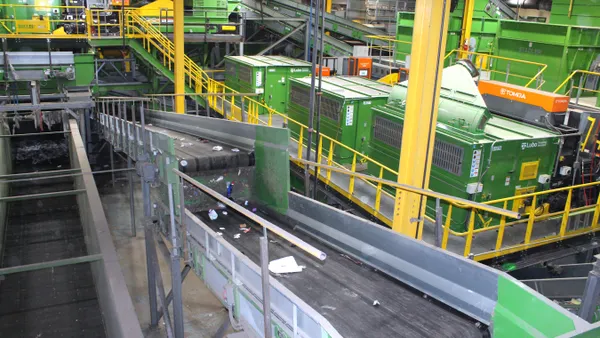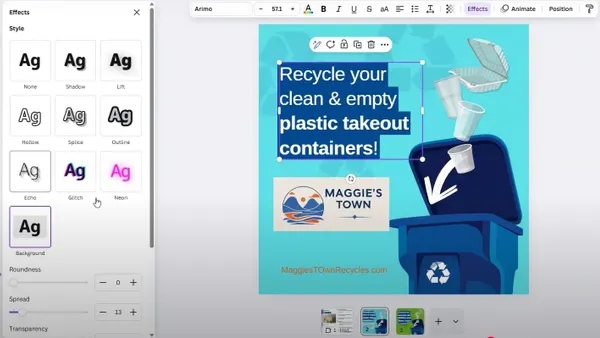Dive Brief:
- The European Commission released its new Circular Economy Package with somewhat less demanding recycling targets than in its original proposal, announced in 2014. However, the Commission said it will soon propose a more ambitious target for recycling plastic packaging.
- The new package calls for recycling 65% of municipal waste and 75% of packaging waste by 2030, and reducing landfill waste to a maximum of 10% by 2030. The 2014 targets were recycling 70% of municipal waste and 80% of packaging waste by 2030, and a total landfill ban by 2025.
- Among several other details of the revised waste proposal are:
- Promotion of economic instruments to discourage landfilling.
- Concrete measures to promote re-use in a way to facilitate converting one industry's by-product to another industry's raw material.
- Economic incentives for producers to put greener products on the market and support recovery and recycling schemes.
Dive Insight:
The concept of a circular economy involves the conversion of waste into new raw materials, and it invites innovation — for instance, development of better ways to preserve food and to improve the recyclability of plastics. Such a focus on renewable, reusable resources is a way to boost the economy. A Waste & Resources Action Programme Report said that the circular economy could create 3 million jobs in Europe.
Frans Timmermans, first vice president at the Commission, said to Plastics News: "The circular economy is about reducing waste and protecting the environment, but it is also about a profound transformation of the way our entire economy works. By rethinking the way we produce, work and buy we can generate new opportunities and create new jobs."
The concept poses challenges, such as inconsistency in materials’ quality. This issue has prompted the Commission to focus on developing quality standards for secondary raw materials, especially plastics.
According to the EU Commission, the revised package is more comprehensive, extending beyond the economics of waste reduction, The EU regulatory body went on to say the package represents "a set of tangible, broad and ambitious actions," which will be presented during the Commission's term.









